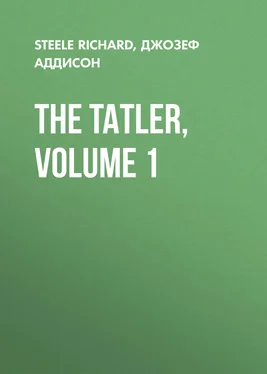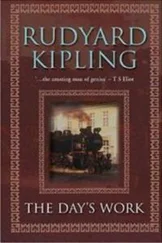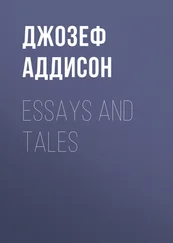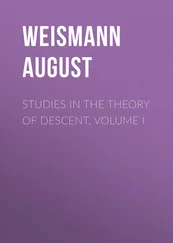Джозеф Аддисон - The Tatler, Volume 1
Здесь есть возможность читать онлайн «Джозеф Аддисон - The Tatler, Volume 1» — ознакомительный отрывок электронной книги совершенно бесплатно, а после прочтения отрывка купить полную версию. В некоторых случаях можно слушать аудио, скачать через торрент в формате fb2 и присутствует краткое содержание. Жанр: foreign_prose, foreign_antique, на английском языке. Описание произведения, (предисловие) а так же отзывы посетителей доступны на портале библиотеки ЛибКат.
- Название:The Tatler, Volume 1
- Автор:
- Жанр:
- Год:неизвестен
- ISBN:нет данных
- Рейтинг книги:4 / 5. Голосов: 1
-
Избранное:Добавить в избранное
- Отзывы:
-
Ваша оценка:
- 80
- 1
- 2
- 3
- 4
- 5
The Tatler, Volume 1: краткое содержание, описание и аннотация
Предлагаем к чтению аннотацию, описание, краткое содержание или предисловие (зависит от того, что написал сам автор книги «The Tatler, Volume 1»). Если вы не нашли необходимую информацию о книге — напишите в комментариях, мы постараемся отыскать её.
The Tatler, Volume 1 — читать онлайн ознакомительный отрывок
Ниже представлен текст книги, разбитый по страницам. Система сохранения места последней прочитанной страницы, позволяет с удобством читать онлайн бесплатно книгу «The Tatler, Volume 1», без необходимости каждый раз заново искать на чём Вы остановились. Поставьте закладку, и сможете в любой момент перейти на страницу, на которой закончили чтение.
Интервал:
Закладка:
From my own Apartment, May 4
Of all the vanities under the sun, I confess, that of being proud of one's birth is the greatest. At the same time, since in this unreasonable age, by the force of prevailing custom, things in which men have no hand are imputed to them; and that I am used by some people, as if Isaac Bickerstaff, though I write myself "Esquire," was nobody: to set the world right in that particular, I shall give you my genealogy, as a kinsman of ours has sent it me from the Heralds' Office. It is certain, and observed by the wisest writers, that there are women who are not nicely chaste, and men not severely honest in all families; therefore let those who may be apt to raise aspersions upon ours, please to give us as impartial an account of their own, and we shall be satisfied. The business of heralds is a matter of so great nicety, that to avoid mistakes, I shall give you my cousin's letter verbatim, without altering a syllable. 176 176 The letter is by Heneage Twysden. (See Steele's Preface.) Heneage Twysden was the seventh son of Sir William Twysden, Bart., of Roydon Hall, East Peckham, Kent. At the time of his death (1709, aged 29) he was a captain of foot in Sir Richard Temple's Regiment, and aide-de-camp to John, Duke of Argyle. Near his monument in the north aisle of the Abbey are two other small ones to the memory of his brothers Josiah and John. Josiah, a captain of foot, was killed in Flanders in 1708, in his 23rd year; John was a lieutenant in the admiral's ship, under Sir Cloudesley Shovel, and perished with him in 1707, in his 24th year. [Chalmers.]—Heneage Twysden was killed at the battle of Blarequies.
"DEAR COUSIN,
"Since you have been pleased to make yourself so famous of late, by your ingenious writings, and some time ago by your learned Predictions: since Partridge, of immortal memory, is dead and gone, who, poetical as he was, could not understand his own poetry; and philomathical as he was, could not read his own destiny: since the Pope, the King of France, and great part of his Court, are either literally or metaphorically defunct: since, I say, these things (not foretold by any one but yourself) have come to pass after so surprising a manner; it is with no small concern I see the original of the Staffian race so little known in the world as it is at this time; for which reason, as you have employed your studies in astronomy and the occult sciences, so I, my mother being a Welsh woman, dedicated mine to genealogy, particularly that of our own family, which, for its antiquity and number, may challenge any in Great Britain. The Staffs are originally of Staffordshire, which took its name from them: the first that I find of the Staffs was one Jacobstaff, a famous and renowned astronomer, who by Dorothy his wife, had issue seven sons; viz., Bickerstaff, Longstaff, Wagstaff, Quarterstaff, Whitestaff, Falstaff, and Tipstaff. He also had a younger brother who was twice married, and had five sons; viz., Distaff, Pikestaff, Mopstaff, Broomstaff, and Raggedstaff. As for the branch from whence you spring, I shall say very little of it, only that it is the chief of the Staffs, and called Bickerstaff, quasi Biggerstaff; as much as to say, the great staff, or staff of staffs; and that it has applied itself to astronomy with great success, after the example of our aforesaid forefather. The descendants from Longstaff, the second son, were a rakish disorderly sort of people, and rambled from one place to another, till in Harry II.'s time they settled in Kent, and were called Long-tails, from the long tails which were sent them as a punishment for the murder of Thomas-à-Becket, as the legends say; they have been always sought after by the ladies; but whether it be to show their aversion to popery, or their love to miracles, I can't say. The Wagstaffs are a merry thoughtless sort of people, who have always been opinionated of their own wit; they have turned themselves mostly to poetry. This is the most numerous branch of our family, and the poorest. The Quarterstaffs are most of them prize-fighters or deer-stealers. There have been so many of them hanged lately, that there are very few of that branch of our family left. The Whitestaffs 177 177 The allusion is to the staff carried by the First Lord of the Treasury.
are all courtiers, and have had very considerable places: there have been some of them of that strength and dexterity, that five hundred of the ablest men in the kingdom 178 178 The House of Commons.
have often tugged in vain to pull a staff out of their hands. The Falstaffs are strangely given to whoring and drinking: there are abundance of them in and about London. And one thing is very remarkable of this branch, and that is, there are just as many women as men in it. There was a wicked stick of wood of this name in Harry IV.'s time, one Sir John Falstaff. As for Tipstaff, the youngest son, he was an honest fellow; but his sons, and his sons' sons, have all of them been the veriest rogues living: it is this unlucky branch has stocked the nation with that swarm of lawyers, attorneys, serjeants, and bailiffs, with which the nation is overrun. Tipstaff, being a seventh son, used to cure the king's evil; but his rascally descendants are so far from having that healing quality, that by a touch upon the shoulder, they give a man such an ill habit of body, that he can never come abroad afterwards. This is all I know of the line of Jacobstaff: his younger brother Isaacstaff, as I told you before, had five sons, and was married twice; his first wife was a Staff (for they did not stand upon false heraldry in those days), by whom he had one son, who in process of time, being a schoolmaster, and well read in the Greek, called himself Distaff or Twicestaff: he was not very rich, so he put his children out to trades; and the Distaffs have ever since been employed in the woollen and linen manufactures, except myself, who am a genealogist. Pikestaff, the eldest son by the second venter, was a man of business, a downright plodding fellow, and withal so plain, that he became a proverb. Most of this family are at present in the army. Raggedstaff was an unlucky boy, and used to tear his clothes getting birds' nests, and was always playing with a tame bear his father kept. Mopstaff fell in love with one of his father's maids, and used to help her to clean the house. Broomstaff was a chimney-sweeper. The Mopstaffs and Broomstaffs are naturally as civil people as ever went out of doors; but alas! if they once get into ill hands, they knock down all before them. Pilgrimstaff run away from his friends, and went strolling about the country: and Pipestaff was a wine-cooper. These two were the unlawful issue of Longstaff.
"N.B. The Canes, the Clubs, the Cudgels, the Wands, the Devil upon two Sticks, and one Bread, that goes by the name of Staff of Life, are none of our relations.
"I am, dear Cousin,
"Your humble Servant,
"D. DISTAFF."From the Heralds' Office, May 1 ."
St. James's Coffee-house, May 4
As politic news is not the principal subject on which we treat, we are so happy as to have no occasion for that art of cookery, which our brother-newsmongers so much excel in; as appears by their excellent and inimitable manner of dressing up a second time for your taste the same dish which they gave you the day before, in case there come over no new pickles from Holland. Therefore, when we have nothing to say to you from courts and camps, we hope still to give you somewhat new and curious from ourselves: the women of our house, upon occasion, being capable of carrying on the business, according to the laudable custom of the wives in Holland; but, without further preface, take what we have not mentioned in our former relations.
Letters from Hanover of the 30th of the last month say, that the Prince Royal of Prussia arrived there on the 15th, and left that Court on the 2nd of this month, in pursuit of his journey to Flanders, where he makes the ensuing campaign. Those advices add, that the young Prince Nassau, hereditary governor of Friesland, consummated on the 26th of the last month his marriage with the beauteous princess of Hesse-Cassel, with a pomp and magnificence suitable to their age and quality.
Читать дальшеИнтервал:
Закладка:
Похожие книги на «The Tatler, Volume 1»
Представляем Вашему вниманию похожие книги на «The Tatler, Volume 1» списком для выбора. Мы отобрали схожую по названию и смыслу литературу в надежде предоставить читателям больше вариантов отыскать новые, интересные, ещё непрочитанные произведения.
Обсуждение, отзывы о книге «The Tatler, Volume 1» и просто собственные мнения читателей. Оставьте ваши комментарии, напишите, что Вы думаете о произведении, его смысле или главных героях. Укажите что конкретно понравилось, а что нет, и почему Вы так считаете.












